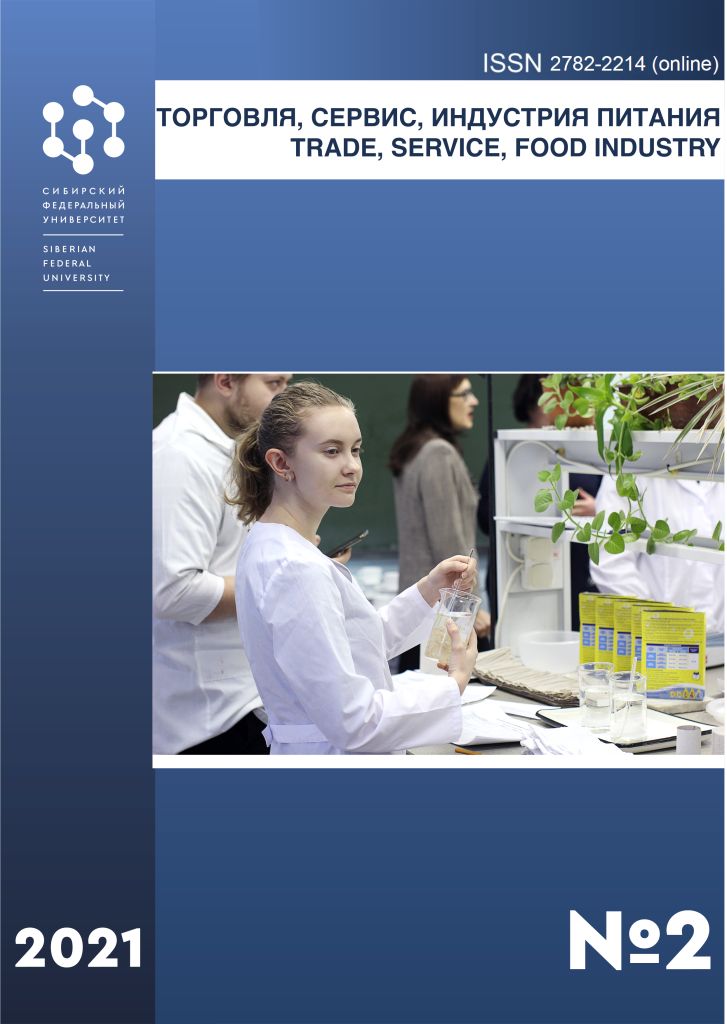Krasnoyarsk, Russian Federation
Russian Federation
Russian Federation
UDC 33
CSCSTI 06.77
The information base of the study was the works of economists in the field of approaches to assessing the effectiveness of worker’s work. The article is devoted to the development of an algorithm for evaluating labor efficiency, taking into account the improved methodology. The hypothesis of the study is the assumption of increasing the influence of the concept of sustainable economic development on the choice of methods for evaluating the effectiveness of labor resources. Within the framework of this study, the authors consider various concepts for the study of labor efficiency, highlight the advantages and disadvantages of existing approaches and offer their own concept of evaluating labor efficiency from the point of view of the concept of sustainable development. The approbation of the author's methodology is presented on the example of a specific company.
labor efficiency of employees, scientific and methodological approaches, tools for evaluating efficiency, the concept of sustainable development
1. Alexandrov, Yu. L. et al. (2015). Problems of efficiency and sustainability of the development of the macroeconomic system. Yu. L. AlexandrovKrasnoyarsk: SibFU. 164 p.
2. Alexandrov, Yu. L. & Demchenko, O. S. (2012). Problems of formation and implementation of the stabilization. Problems of the modern economy. 3 (43). 99-102.
3. Zarova, E. V., Kryuchkova, P. V. & Musikhin, S. N. (2017). Methods of assessing the achievement of target parameters of labor productivity growth. Moscow. INFRA-M. 130 p.
4. Kibanov, A. Ya., Ivanovskaya, L. V. & Mitrofanova, E. A. (2020). Personnel management. Moscow. RIOR. 288 p.
5. Kibanov, A. Ya., Mitrofanova, E. A., Konovalova, V. G. & Chulanova, O. L. (2020). The concept of a competence-based approach in personnel management. Moscow. INFRA-M. - 156 p.
6. Cotton, D. (2018). Key models for self-development and personnel management. 75 models that every manager should know. Moscow. Laboratory of Knowledge. 323 p.
7. Kuzmina, N. M. (2019). Personnel policy of the corporation. Moscow. INFRA-M. 167 p.
8. Postolov, E. M. Correlation of the concepts of efficiency and economic efficiency of economic and innovative activities of enterprises [Electronic resource]. Access mode: http://www.rusnauka.com/27_NII_2008/Economics/35034.doc.htm
9. Ryabtseva, I. F. & Kuzbozhev, E. N. (2019). Labor productivity and technical policy of the enterprise [Text]: monograph. Moscow. INFRA-M. 199 p.
10. Suslova, Yu. Yu. & Demchenko, O. S. (2017). Structural and institutional factors of modern crises in developed countries. Microeconomics. 1. 5-9.
11. Demchenko, S.K., Zlotnikov, M.S., Melnikova, T.A. & Demchenko, O.S. (2019). Theoretical and methodological bases of improving the assessment of the effectiveness and synchronous functioning of a country's socioeconomic system under conditions of transformation. International Journal of Civil Engineering and Technology. 10(2). 1877-1884. Access mode: http://www.iaeme.com/ijciet /IJCIET_Paper.asp?sno=16004.
12. Hentze, J., Kammel, A. & Lindert. K. (1997). Personal führunglehre: Grundlagen, Funktionen and Modelle der Führung.3. vollst überarb. Aulf. Bern; Stuttgart; Wien. 44-48. https://link.springer.com/chapter/10.1007/978-3-642-42065-8_5
13. Von Kieser, A. Reber, G. (1995). Effizienz der Führung. Handwörterbuch der Führung. 2. Aulf. Stuttgart. 263-276. https://link.springer.com/chapter/10.1007/978-3-322-88994-2_5
14. Zhironkin, S., Demchenko, S., Kayachev, G., Ryzhkova, M., Zhironkina, O. (2018). Neo-industrial base for sustainable development of raw-materials cluster. In: E3S Web of Conferences. 3rd International Innovative Mining Symposium, IIMS.
15. Zhironkin, S., Janocko, J., Demchenko, S., Suslova, Yu. & Zhironkina O. (2020). Reproduction Forms of Sustainable Development Policy in Russia. E3S Web of Conferences, 174, 04020. Access mode: https://www.e3s - conferences.org/articles/e3sconf/pdf/2020/34/e3sconf_iims2020_04020.pdf








